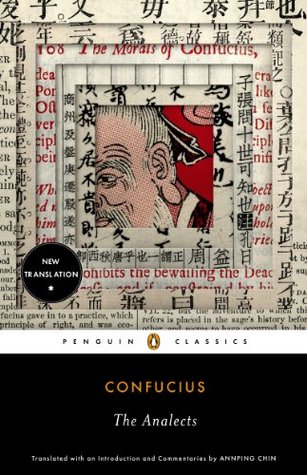More on this book
Community
Kindle Notes & Highlights
They asked whether proof of ability and strength of character should be the measures of a person’s worth, and whether men of noble rank should be stripped of their titles and privileges for their incompetence and moral indiscretion. Men who posed such questions were not just seeking a chance to compete in the political world; they wanted to rewrite the rules so that the outcome would benefit the virtuous and the competent. This, in part, explains what Confucius was trying to teach. He believed that the moral resolve of a few could favorably affect the fate of many.
“Not to anticipate deception and not to expect bad faith and yet to be the first to be aware of such behavior—this is proof of one’s worthiness.”
Master Zeng [Zengzi] said, “Every day I examine myself on three points. When I worked to benefit someone else, did I do my best? In my relationship with my friends, did I fail to be trustworthy? Did I pass on any knowledge I myself had not put into practice?”
He should cherish all people but should stay close to the most humane. And if he has energy left to do more, he should devote himself to the arts.”
The Master said, “If a man of position [junzi] does not have integrity, he will not inspire awe.
The Master said, “Do not worry that other people do not know you. But be concerned that you do not know them.”
The Master said, “If you guide the people with ordinances and statutes and keep them in line with [threats of] punishment, they will try to stay out of trouble but will have no sense of shame. If you guide them with exemplary virtue [de] and keep them in line with the practice of the rites [li], they will have a sense of shame and will know to reform themselves.”
The Master said, “Observe [shi] what a person does. Look into [guan] what he has done [you]. Consider [cha] where he feels at home. How then can he hide his character?”
“Promote the upright and place them above the crooked, and the people will be in awe of you and come under your sway [fu]. The opposite will happen if you promote the crooked and place them above the upright.”
Faced with what is right yet doing nothing about it shows a lack of courage.”
The Master said, “Wealth and eminence are what people desire. If you cannot acquire them by proper means, you should not accept them. Poverty and lowly position are what people despise. If you cannot avoid them by proper means, you should not reject them. If the gentleman forsakes humaneness, how can he be worthy of the name of gentleman? The gentleman does not abandon humaneness, not even for the duration of a meal. He holds on to it whether he is in a hurry or in a crisis.”
The Master said, “A gentleman, in his dealings with the world, is not predisposed to what he is for or against. He sides only with what is right.”
“As head of the government, why would you need to kill anyone [to bring about moral order]? The character of those at the top [junzi] is like that of the wind. The character of those below [xiaoren] is like that of grass. When wind blows over the grass, the grass is sure to bend.”
“When the state is governed according to the moral way, one would accept a salary. When the state is not governed according to the moral way, it would be shameful to accept a salary.”
Zixia said, “When a petty man makes a mistake, it’s certain that he will try to gloss it over.”
Zixia said, “Do not overstep the line when it comes to matters that involve important principles of integrity. But allow yourself some leeway in matters that involve minor infringements.”


